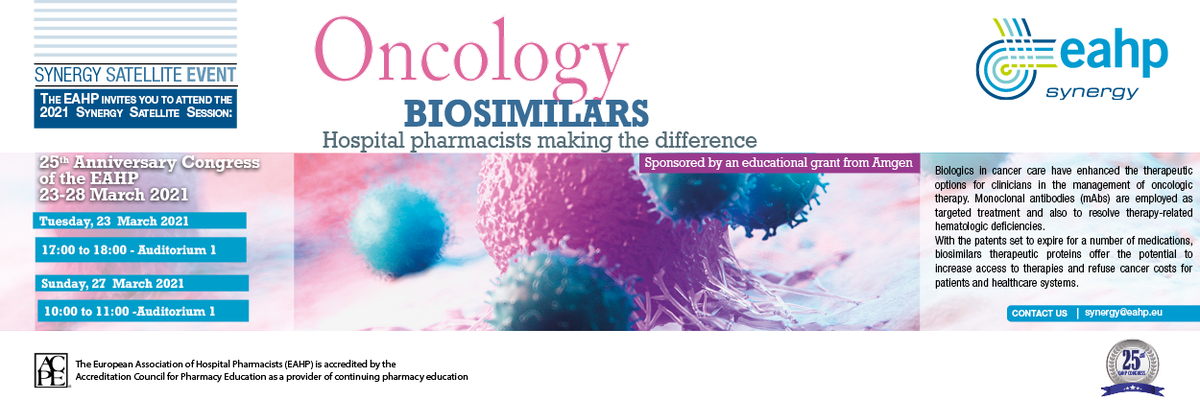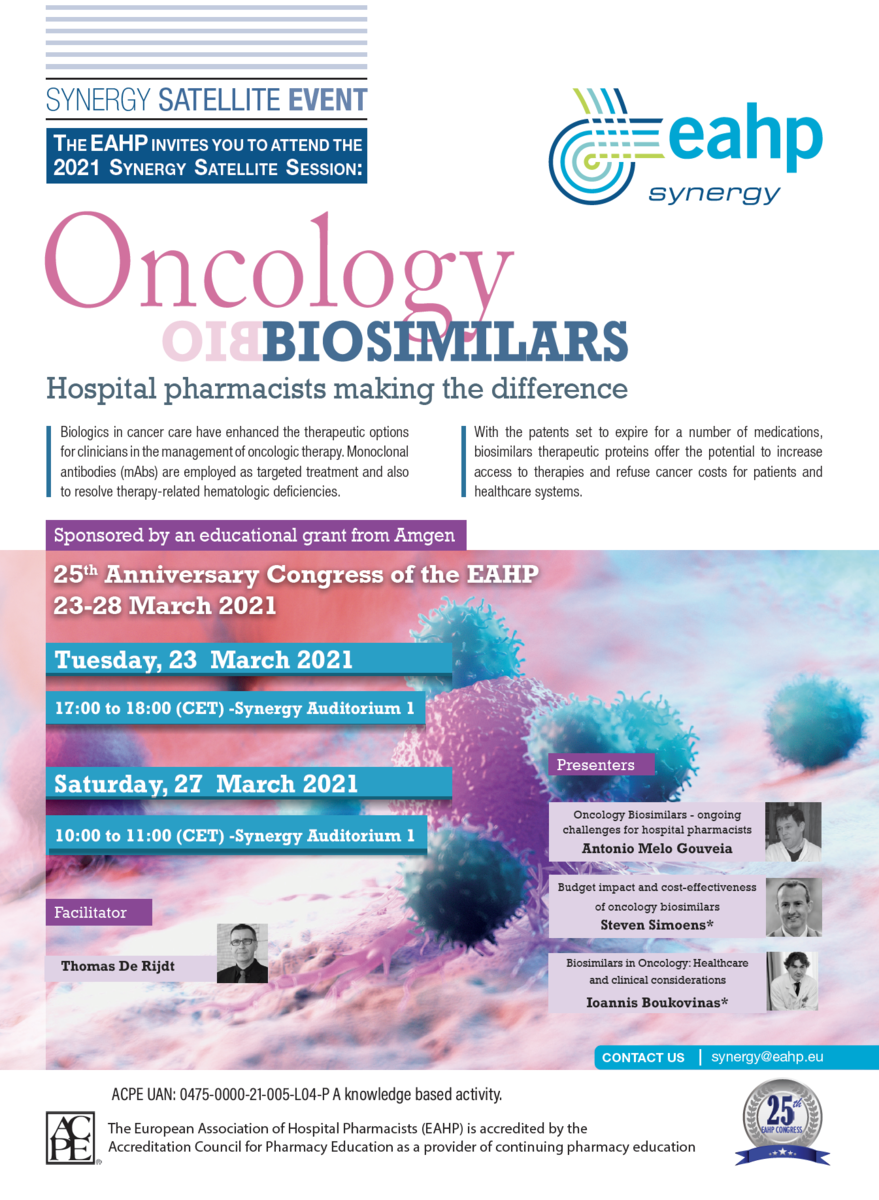
Linked to EAHP Statements
Section 1 – Introductory Statements and Governance: Statements 1.1, 1.6
Section 4 – Clinical Pharmacy Services: Statement 4.1
Section 5 – Patient Safety and Quality Assurance: Statement 5.11
ACPE UAN: 0475-0000-21-005-L04-P. A knowledge based activity.
Abstract

Biologics in cancer care have enhanced the therapeutic options for clinicians in the management of oncologic therapy. Monoclonal antibodies (mAbs) are employed as targeted treatment and also to resolve therapy-related hematologic deficiencies. With the patents set to expire for several medications, biosimilars therapeutic proteins offer the potential to increase access to therapies and refuse cancer costs for patients and healthcare systems, while providing safety and efficacy profiles consistent with their respective reference or originator products and for which there are no clinically meaningful differences between the two products in terms of safety, purity and potency.
Biosimilar development programs for therapeutics including bevacizumab, cetuximab, rituximab, and trastuzumab; and supportive care products including epoetin alfa, filgrastim, and pegfilgrastim, are currently ongoing.
Moreover, biosimilars may offer additional advantages such as supply-chain benefits, patient-access support networks and assistance with reimbursement administration, as well as specialist pharmacy services.
Such potential services and advantages can only be provided if assessment and procurement systems reflect criteria beyond price, thereby it is important for healthcare professionals to have a good understanding of biosimilars, their development, regulatory approval processes and clinical utility, including the rules of switching and reswitching issues.
Hospital pharmacist can play a key role in the continued and increased use of biosimilars in cancer therapy. It is important to educate patients and ensure the quality use of medicines to avoid confusion. They could also run a patient-centred pharmacovigilance framework within the hospital to monitor and report outcomes and any adverse events associated with all biological therapies. Besides, they could have a driver’s seat to procurement strategies to cover the high cost, high volume biologics products.
Learning objectives
After this Synergy session, participants should be able to:
• advise how to implement and provide monitoring of biosimilars used in oncology;
• discuss and collaborate with other HCPs on specific issues relating to the optimum uses in the hospital area;
• assess the financial impact of oncology biosimilars on healthcare systems and be able to give a pharmacoeconomic view.
Educational need addressed
This is relevant for hospital pharmacists working in oncology therapeutic area.
Keywords: new drugs, biosimilars, cancer therapy, monoclonal antibodies, switching, monitoring, oncology.
ACPE information:
The Synergy Satellite is accredited by ACPE and in order to receive your ACPE accreditation points, what you have learnt during this session will be assessed.
During the session you will have to answer the self-assessment questions by scanning the QR code with your phone or clicking on the link available in the chat.

























